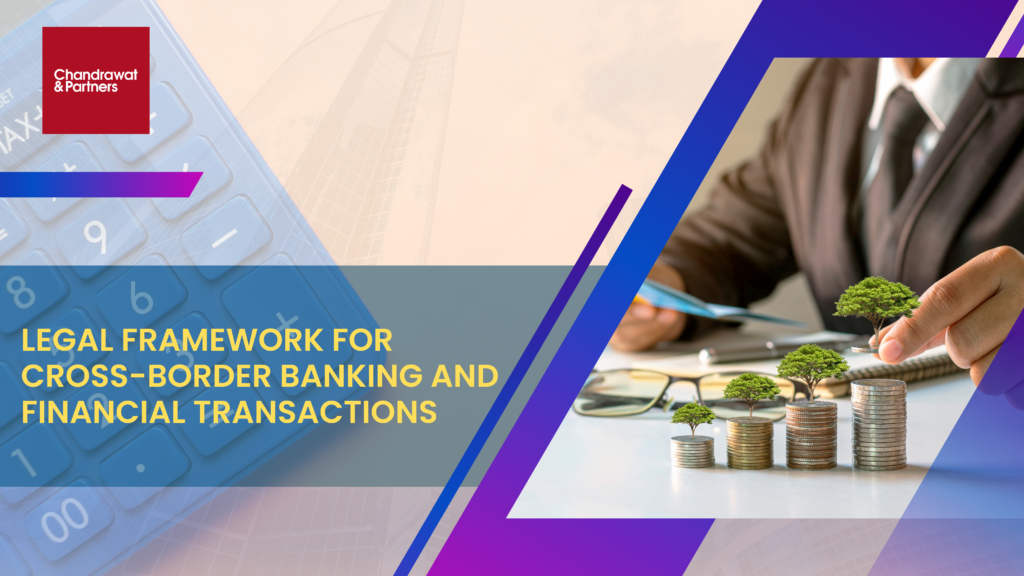Edit Content
Edit Content
Edit Content
Edit Content
Edit Content
Edit Content

In an interconnected global economy, cross-border banking and finance transactions play a significant role in facilitating international trade, investments, and economic growth. However, conducting such transactions requires adherence to a complex legal framework to ensure compliance, protect parties’ interests, and address potential disputes.
The legal framework governing cross-border transactions encompasses a range of elements, including international conventions, regional agreements, and national laws. International conventions and treaties, such as the Basel Accords developed by the Basel Committee on Banking Supervision, establish globally recognized standards and guidelines for banking supervision and risk management. These conventions aim to promote stability, consistency, and integrity in the international banking system. In addition to the regulatory framework, the resolution of disputes that may arise during cross-border transactions requires effective mechanisms. Parties engaged in cross-border transactions may encounter conflicts related to contractual obligations, regulatory compliance, payment disputes, or other issues. Having robust dispute resolution mechanisms in place is essential to address these conflicts in a fair, efficient, and impartial manner. This blog will explore the legal framework governing cross-border banking and finance transactions, including the regulatory framework and dispute resolution mechanisms.
Cross-border banking and finance transactions refer to financial activities that involve parties from different countries. These transactions can include cross-border loans, international trade finance, foreign direct investments, syndicated loans, currency exchange, and more. Such transactions are subject to multiple legal jurisdictions, regulations, and agreements, making it essential to have a clear understanding of the legal framework involved.
Cross-border banking and finance transactions are governed by a variety of legal instruments at the international, regional, and national levels. These include international conventions, treaties, bilateral and multilateral agreements, and domestic laws and regulations. Here are some key aspects of the regulatory framework:
International conventions, such as the Basel Accords for banking supervision, the International Swaps and Derivatives Association (“ISDA”) agreements for derivatives transactions, and the United Nations Convention on International Bills of Exchange and International Promissory Notes, provide guidelines and standards for cross-border transactions. These conventions aim to harmonize regulatory practices, promote stability, and enhance transparency in the global financial system.
Regional organizations and agreements, such as the European Union’s Single Euro Payments Area (“SEPA”) and the Association of Southeast Asian Nations (“ASEAN”) economic integration, establish frameworks for harmonizing regulations and facilitating cross-border financial transactions within specific regions. These agreements promote closer economic cooperation, reduce barriers to trade and investment, and enhance financial integration among member states.
Each country has its own laws and regulations governing cross-border banking and finance transactions. These may include foreign exchange regulations, anti-money laundering laws, capital control measures, and licensing requirements for foreign financial institutions. Compliance with these laws is essential to ensure legal and regulatory compliance when engaging in cross-border transactions.
Given the complex nature of cross-border transactions, disputes can arise between parties involved. Resolving such disputes requires efficient and effective mechanisms. Here are some common cross-border dispute resolution mechanisms:
Arbitration offers a private and neutral forum for resolving disputes outside the traditional court system. Parties can agree to submit their disputes to arbitration and select arbitrators with expertise in banking and finance matters. International arbitration institutions, such as the International Chamber of Commerce (“ICC”) and the London Court of International Arbitration (“LCIA”), play a vital role in administering cross-border arbitration proceedings. Arbitration provides flexibility, confidentiality, and enforceability of awards across borders.
Mediation involves a neutral third-party facilitating negotiations between the disputing parties to reach a mutually acceptable resolution. Mediation can be an effective and less adversarial option for resolving cross-border disputes, promoting cooperation, and preserving business relationships. Mediation allows parties to actively participate in the decision-making process and reach a solution tailored to their specific needs.
In some cases, disputes may be resolved through international courts and tribunals. For instance, the International Court of Justice (“ICJ”) handles disputes between states, while specialized courts like the International Commercial Court and the World Trade Organization (“WTO”) Dispute Settlement Body deal with specific cross-border financial disputes. These international courts and tribunals provide a forum for resolving disputes between parties from different countries, ensuring impartiality and expertise in handling complex legal matters.
The legal framework for cross-border banking and finance transactions is complex and multi-faceted. Understanding the regulatory landscape, complying with international conventions, regional agreements, and national laws, and utilizing appropriate dispute resolution mechanisms are essential for successful cross-border transactions. By navigating the legal framework effectively, parties can mitigate risks, protect their interests, and foster trust and cooperation in the global banking and finance industry.
Moreover, effective dispute resolution mechanisms play a vital role in addressing conflicts that may arise during cross-border transactions. Options such as arbitration, mediation, and recourse to international courts and tribunals provide parties with avenues to resolve disputes impartially, efficiently, and in accordance with established legal principles.
For more information or queries, please email us at
enquiries@chandrawatpartners.com

Managing Partner
Chandrawat & Partners is a prominent full-service firm dedicated to delivering top-tier professional services to clients both within the domestic and international spheres.
Copyright © Chandrawat & Partners. All Rights Reserved.
Copyright © Chandrawat & Partners. All Rights Reserved.

Chandrawat & Partners stands as a dynamic and rapidly expanding full-service firm, specializing in the delivery of exceptional professional and corporate services to a diverse clientele, both foreign and local. We proudly represent companies and individuals across a wide spectrum of sectors through distinct entities established in various countries worldwide.
Chandrawat & Partners stands as a dynamic and rapidly expanding full-service firm, specializing in the delivery of exceptional professional and corporate services to a diverse clientele, both foreign and local. We proudly represent companies and individuals across a wide spectrum of sectors through distinct entities established in various countries worldwide.
ASIA
AFRICA
EUROPE
NORTH AMERICA
SOUTH AMERICA
OCEANIA